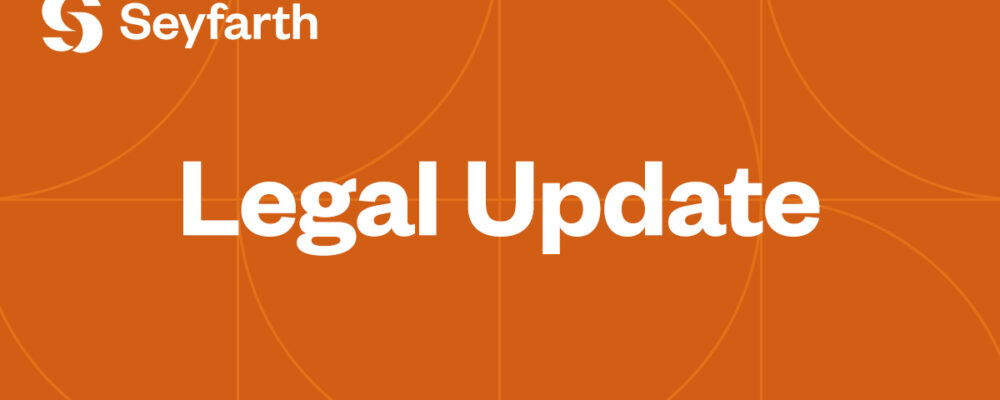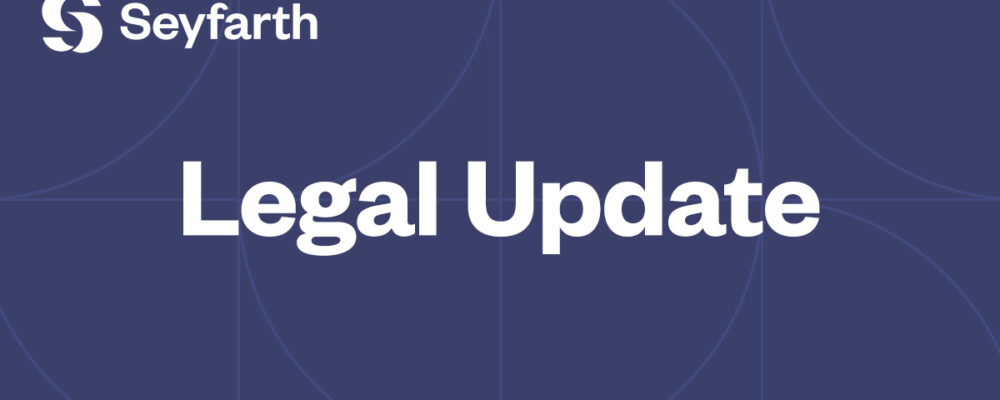By: John W. Egan and Minh N. Vu
Seyfarth Synopsis: A recent decision holding that web-only businesses cannot be sued over the accessibility of their website under the ADA is the first of its kind in the Southern District of New York and may cause forum-shopping serial plaintiffs and their counsel to shift to state court.
The Chief Judge Laura Taylor Swain of the U.S. District Court for the Southern District of New York (SDNY) issued a ruling this week dismissing a website accessibility lawsuit filed under the ADA because the website was not associated with any physical location where goods and services are provided to the public. This decision, in Mejia v. High Brew Coffee Inc., is a noteworthy development because it conflicts with the decisions of many other judges in the SDNY who have held that website-only businesses are covered under the ADA. The first decision in New York federal court came from Judge Weinstein of the Eastern District of New York (EDNY) in Andrews v. Blick Art Materials, concluding that the ADA covers websites as places of public accommodations. It should be noted, however, that not all EDNY District Judges have followed Judge Weinstein’s lead. In 2021, Winegard v. Newsday (Komitee, J.) and Suris v. Gannett (Cogan, J.) went another way, holding that the defendant newspaper publishers did not qualify as a covered “place of public accommodation” under the ADA. In the months following those two decisions, we noted a 43 percent decrease in the number website accessibility filings in the EDNY.
In High Brew Coffee, the plaintiff alleged he is a blind screen reader user who could not purchase “a twelve pack of Double Expresso flavored coffee” on two occasions because the website was inaccessible. After reciting the split among the U.S. Courts of Appeals on the question of whether the ADA covers websites without any connection or relationship to physical places of public accommodation, Chief Judge Swain analyzed the Second Circuit’s decision in Pallozzi v. Allstate Life Ins. Co. That case has been cited by other SDNY District Judges to support their conclusion that websites are places of public accommodation, even though Pallozzi merely held that the ADA’s non-discrimination provisions applied to the allegedly discriminatory terms of an insurance policy purchased at an actual, brick and mortar insurance office.
Chief Judge Swain agreed with the EDNY Judges who interpreted Pallozzi to hold that the ADA regulates the sales of insurance policies at insurance offices, and held that the existence of a physical place is a “conditional precedent . . . [to concluding that] the goods and services sold by that place of public accommodation are swept within the ADA’s remit.” The Chief Judge also analyzed the text of the covered categories of “places of public accommodation” enumerated in the ADA for their plain meaning, and considered Congressional intent dating back more than thirty years. Chief Judge Swain reasoned that nearly all of the “establishments” listed in the ADA have physical locations, and declined to find (as some other courts had) that the inclusion of a “travel service” and “other service establishment” among the categories of covered public accommodations supports the application of the ADA to an online-only retailer with no physical storefront.
Interestingly, Chief Judge Swain did not originally preside over this case; the matter was re-assigned to her the after the defendant’s motion to dismiss was fully briefed. We will not speculate as to whether the Chief Judge decided it was necessary for her to express her views on this matter, or whether this decision will have an impact on other Judges in the SDNY who have yet to weigh in on this issue. We do predict, however, that this decision may cool (somewhat) the website accessibility lawsuit frenzy that has besieged New York’s federal courts. In 2023, 77 percent of the 2,794 website accessibility lawsuits filed in federal court were in New York. After this decision, more serial plaintiffs and their attorneys may choose to file their cases in state court instead. As we previously reported, we started observing more state court filings in New York, and other jurisdictions such as California, New Jersey, and Pennsylvania in 2023. The High Brew Coffee ruling may cause this trend to accelerate in New York.
Additionally, it is possible that the plaintiff will appeal the District Court order in High Brew Coffee to the Second Circuit which would provide much needed clarity on this issue. Stay tuned for further updates.
Edited by: Kristina M. Launey
“With approximately 900 lawyers across 17 offices, Seyfarth Shaw LLP provides advisory, litigation, and transactional legal services to clients worldwide.”
Please visit the firm link to site






